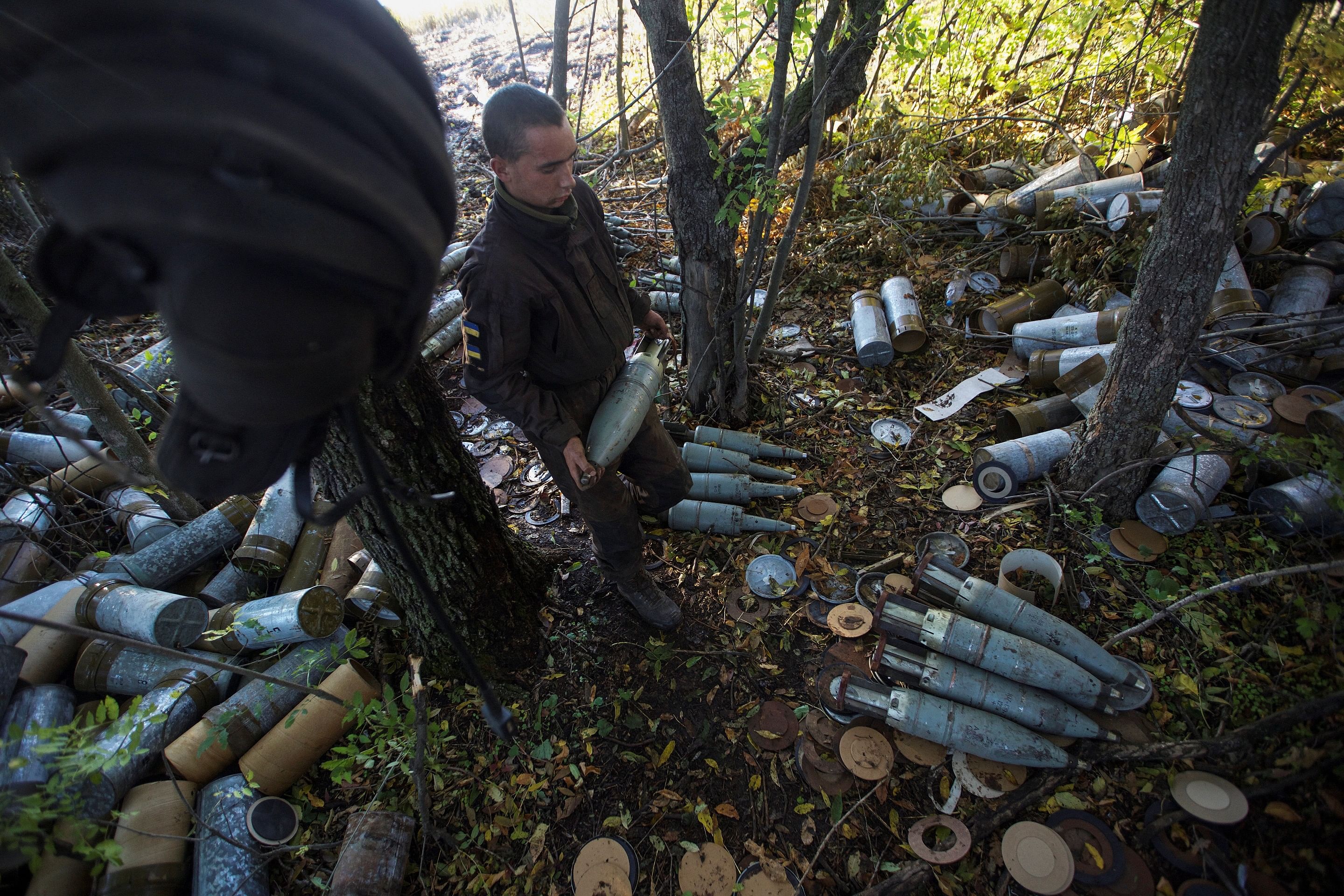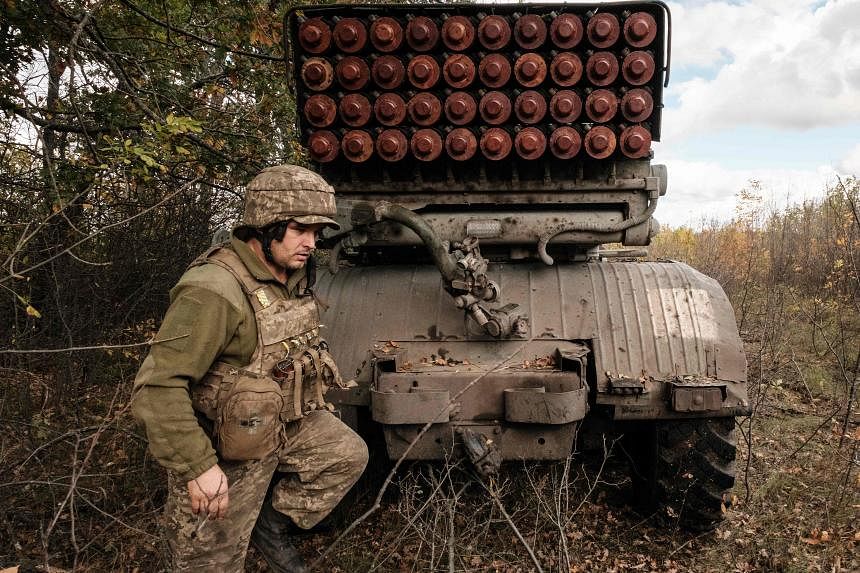KHARKIV REGION, Ukraine - As Russian forces regroup after being driven back from their northeastern positions, Ukrainian artillery crews are determined not to give them breathing space to build a new defensive front.
Over the six months of Russia's occupation of a swathe of eastern Ukraine, the war was dominated by an artillery duel in which Ukraine's beleaguered defenders often found themselves outgunned.
But last month in the northeastern region of Kharkiv, Ukraine turned the battle on its head with a series of offensives led by tanks and infantry, with Kyiv's forces outflanking and isolating Russian bastions before forcing them to retreat.
But there is still a role for artillery, with gunners from units like the 14th Mechanised Brigade, named after Prince Roman the Great, leap-frogging ahead, popping from cover to launch salvoes of shells and rockets to harass Russian units behind the front line.
President Vladimir Putin's supporters in Moscow have blamed their recent defeats on the West, arguing that the Russian army is facing a mercenary army with a huge arsenal of Nato weapons - and some advanced systems have indeed been delivered.
But on Tuesday, the Ukrainian artillery unit operating in eastern Kharkiv was armed with a weapon that has been in use with Soviet and post-Soviet armies since 1963, a BM-21 Grad multiple rocket launcher mounted on a Ural six-wheeled truck.
Deafening bangs
For "Dmytro", the 22-year-old commander of the small unit, the six-decade-old design is perfectly adequate for the task at hand, firing high explosives at a concentration of Russian troops spotted gathered by a warehouse across the front line.
"In general this Grad system is good enough for the mission, and I like to work with it," he told AFP.
They work in a six-man crew. The unit leader receives target coordinates over the radio, while a driver moves the truck with its 40 missile tubes from its hiding place and onto exposed farmland, with clear skies between the launch site and Russian lines.
The unit leader - equipped with a touch-screen tablet with mapping information - calculates the trajectory of the strike and calls it to the crew, who dial it in, elevating the launch tubes and swivelling the launcher.

A series of deafening bangs and a first volley of 122mm rockets roars off. Then there's a brief pause as the team tweaks the elevation of the launcher higher, then turns away as the second volley kicks up gritty earth.
After the second noisy barrage, 15 of the launcher's 40 missile tubes are empty.
From the field, the gunners can't see the target, but Dmytro is confident they hit the Russian soldiers.
"They had some mission and if we manged to hit them, and I'm sure that we managed to hit them, then they will not be able to fulfil that mission," he said. AFP

